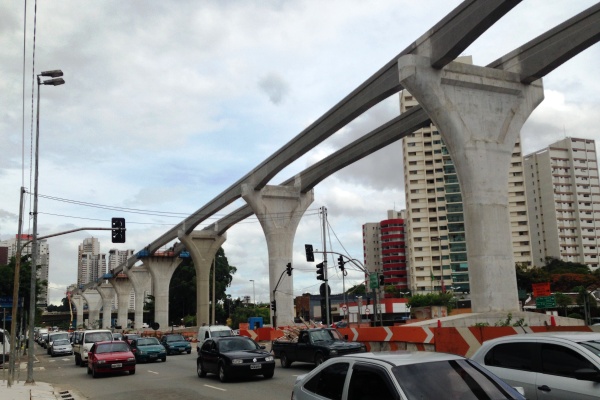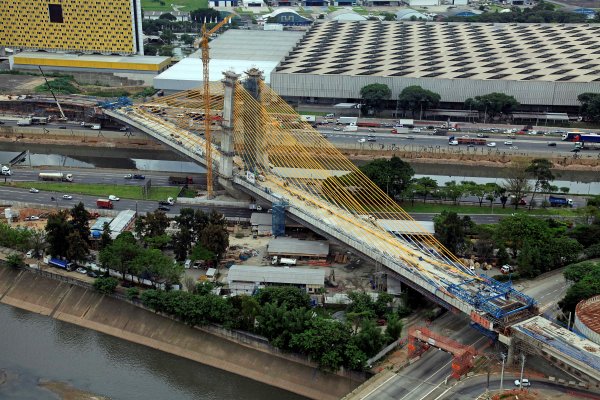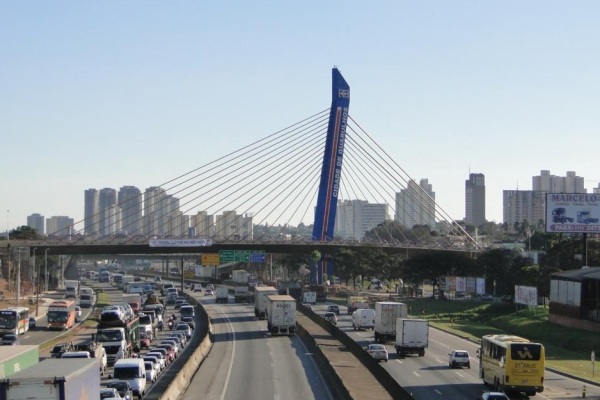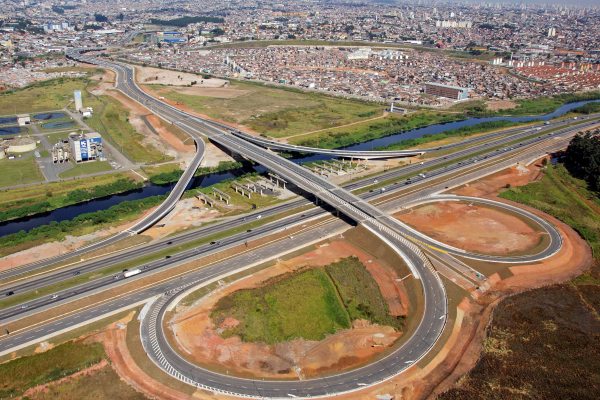Outec Engenharia: Infrastructural and Construction Projects in Brazil
Rui Oyamada, Director of Outec Engenharia
Rui Oyamada gives his assessment of the engineering sector in Brazil, focusing on the areas of project development, consultancy, project management and supervision. He also presents his own company, Outec Engenharia, mentioning some success cases and current projects under development.
Interview with Rui Oyamada, Director of Outec Engenharia
Outec is involved in the areas of project development, consultancy, project management and supervision in Brazil. Can you give us your overview of the sector?
2014 is an atypical year, mainly because there are going to be state and federal elections this year. The results of these elections are going to be key to the positioning of this sector because the government allocates the resources and thus we depend on the policies of the government. Brazil, like all emerging countries, saw weak economic development in 2013 and it seems the results for 2014 are going to be similar. There has been a low volume of work and so this means that we are a bit concerned about the near future.
Our strategy is to continue qualifying our team so that they can increase their technical knowledge. We have always invested in improving our team’s know-how and in having the best technical equipment and modern software for structural analysis.
Could you introduce us to Outec?
Outec Engenharia is a Brazilian company founded in May 1983. I qualified from the Polytechnic University of Sao Paulo in 1982. Soon after, we founded Outec and since then we have been in continual technical advancement, particularly in terms of training up our team.
The company began working on construction projects in the private sector, particularly working on the construction of buildings. Then we began to move into working on projects that command increased responsibility such as infrastructural projects. Today, I would say that our company´s main focus is the construction of bridges and viaducts, which are large scale projects that incentivise all sectors in the country.
What is the company’s philosophy? What differentiates Outec from its competitors?

Outec today is a very qualified company. We have a team of young, hardworking people, who have the entrepreneurial spirit. As the founder of this company, I really try to incentivise our employees to continue their studies within the field of civil engineering, not only studying a bachelor’s degree, but continuing on to study masters and PhDs, etc., because that is the route that has taken Outec to where it is today. I think that in terms of our teams’ qualifications, we are at the head of the market.
Could you give us some examples of Outec’s success cases?
One of our most recent success cases is the monorail for line 17 of the metro system. We began to develop this project two years ago; we developed the entire layout and structure of the line, which is almost 18km long. This project is made up of three sections; the first section connects Congonhas to the Morumbi CPTM station, the second section will link the CPTM station to the yellow line 4 and the third section will link the Congonhas station to the Jabaquara station. This project will greatly improve the urban mobility in Sao Paulo. This monorail metro system is a non-polluting means of transport that is also very quiet. Hence, we are really pleased with how this project is proceeding and with the success of this project so far.
Other projects that I consider to be very important and that represent the success of Outec in the market are the projects to do with the Rodoanel ring road. Outec has participated in all three of the ring roads. We are working on this project with the government entity DERSA that administers the Rodoanel projects. We began working on the East section and then on the South section.

Another recent project is the Tamoios Highway where we worked on the plateau section. This was an excellent project that was delivered on time.
We have worked on many other successful and punctual projects, for example the cable-stayed bridge on the Marginal Tietê section of the highway. This impacting project was quite challenging but was a real success and has brought much credibility to our company.
What are some of the projects that you are working on now, either here in Brazil or abroad?
We have worked all over Brazil and in many other countries, particularly the countries that border Brazil. We are working in Peru on a highway that will bring better access to the pacific, and we are working on various projects in Bolivia and in Panama.
Within Brazil we are working on projects in the north and northeast of the country, for example we worked on a huge bridge in Aracaju that is 1800m long and that has a 200m long, central cable-stayed section. We have also worked on the Forte-Redinha Bridge in Rio Grande do Norte and on some bridges in the state of Acre.
The important projects that we are working on now are, as I said before, the monorail, the ring road and the Tamoios highway in Sao Paulo. We are also working on the Castelo Branco highway, the Dutra highway and the Anhanguera-Bandeirantes highway.
What is Outec’s growth strategy? Is foreign expansion a priority for you? How much turnover would you like foreign projects to represent?
Our strategy is to continue qualifying our team so that they can increase their technical knowledge. We have always invested in improving our team’s know-how and in having the best technical equipment and modern software for structural analysis. We also invest in foreign directories that are kept well up to date.
Our work abroad represents about 10% of our turnover. It depends on the year and the opportunities; we have years where we have more work abroad than nationally and vice versa. Our main market is still the Brazilian market.
What are the main challenges that Outec faces?
As I said, this company is more than 30 years old and we have experienced challenges along the way. When we founded the company in 1983, the country was experiencing a serious economic crisis. So I would say that we have been facing challenges ever since! Nevertheless, with dedication, perseverance and investment in qualifications for all of our team members I can say that today we are a leader in the Brazilian market of engineering, within this field and consequently this has helped us achieve work and clients.

Are you interested in forming partnerships?
Due to the financial crisis in Europe, there are some foreign engineering companies, particularly Portuguese and Spanish companies, which are looking for partnerships in Brazil. We have been in contact with some of these companies and maybe in the future we might go into some kind of partnership. Right now, I would say that a partnership would benefit the foreign company more than it would benefit us. However, it would offer an opportunity to open out to new markets and increase our scope.
How do you view the future of this sector over the next few years?
Despite the short-term challenges that I mentioned at the beginning, Brazil is a country that needs a lot of investment in infrastructure. Many regions in the country are lacking such investment, particularly in terms of transport, not only highways but also railways, metros and even waterways. I would say that even though we are going to hold the World Cup, many investment projects were not carried out or finished. There is still a lot of investment needed in terms of airports in Brazil.
Another area that I think offers many opportunities for growth in Brazil is that of ports, because we are lacking a lot of port infrastructure.
I still really believe in this country and in the growth of this sector here in Brazil.
What would you like to achieve over the next couple of years?

To be honest, Outec has been growing year upon year, perhaps at a slightly slower pace than we might have liked, but I am pleased to say we have always been a company focused on providing a top quality service. This is really our company philosophy and something I am proud to have achieved. I would say that one challenge we face is having the human resources necessary in order to grow, because we want growth without sacrificing quality. That´s why I have invested a lot in educating the younger generation and helping them get qualified, which I think allows us to grow in this market. If we were to go into partnership with another company, we would like that to mean that we could amplify this education to include other areas within civil engineering. Outec’s focus currently is principally projects linked to bridges and viaducts but we would like to expand into other areas such as port, industrial or sanitation projects. This is the kind of market that we would like to enter in the coming years.
What advice would you give to a foreign investor who is thinking about entering this sector?
Besides the companies that are coming to Brazil in search of partnerships there are also individual engineers coming to Brazil looking for work here. I would say that Brazil still offers many opportunities in various sectors. This obviously much depends on how the economy here is managed over the next few years. If the economy is doing well, then the country will invest more in infrastructure and so there will be many opportunities here. I believe that this country has a lot of potential and I think that we should do all we can to create a better country for the future generations.
FAIR USE POLICY
This material (including media content) may not be published, broadcasted, rewritten, or redistributed. However, linking directly to the page (including the source, i.e. Marcopolis.net) is permitted and encouraged.